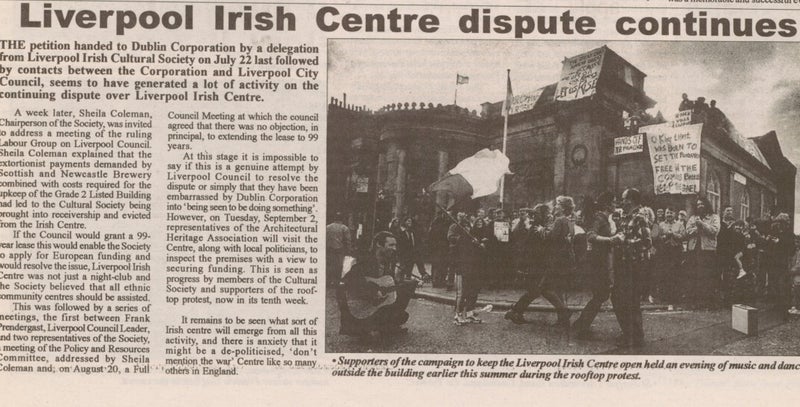Liverpool’s rich and varied history of Irish immigration is intertwined with its exponential growth since the Industrial Revolution. In the first three decades of the nineteenth century, the town’s population more than doubled, from 77,000 to 165,000. Arrivals from Ireland contributed significantly to the population growth. Thousands of Irish immigrants arrived on Merseyside to work in cotton mills and on the docks, canals, and the railways.
A further wave of Irish migration came with the Irish Famine of the late 1840s, when an estimated 1.5 million people fled Ireland in desperation. Merseyside’s claim to the strongest Irish heritage of any English region goes back to the mid-nineteenth century. By 1851, the Irish comprised more than one-fifth of the local population. It is thought that some three-quarters of Liverpudlians today can claim Irish ancestry.
Irish emigrants have played major roles in civic life on Merseyside ever since. Wexford-born Patrick Byrne, for example, arrived in Liverpool in the early 1860s, and became a popular local councillor, known as a generous champion of the community and the poor. In honour of his sartorial elegance, Byrne became affectionately known as ‘Dandy Pat’. After his death in 1890, a memorial statue was erected in memory in the city’s Pownall Square. Meanwhile, when he was elected as MP for Liverpool Scotland Road in 1885, T. P. O’Connor became the first Irish Parliamentary Party candidate elected in England. O’Connor remained a celebrated MP until 1929.

The influx of predominantly Catholic Irish migrants also stirred sectarian tensions in Liverpool between Catholics and Protestants. In the late 1860s, Protestant demagogues like William Murphy warned the native population that Irish immigrants were importing the evils of popery and Fenian conspiracies to overthrow the government by armed insurrection. Murphy addressed crowds and provoked riots in Liverpool several times on his national speaking tours.

Liverpool’s Irish community has deep-rooted ties with the labour movement on Merseyside, as well as with the politics of Irish nationalism and republicanism. In the early 1970s, Liverpool Irish Centre regularly coordinated fundraising for families displaced by the conflict in Northern Ireland. By 1972, the Liverpool Irish had donated more than £2,000 to the Innocents' Dependents' Fund coordinated by prominent Catholic clerics such as Father Denis Faul of Dungannon, County Tyrone.
Especially through the trade unions, the Liverpool Irish engaged critically with Britain's role in Ireland. In 1978, for instance, with support from the Merseyside United Troops Out Movement, Liverpool Trades Council organised a major conference and campaign against the Prevention of Terrorism Act.

Create Your Own Website With Webador